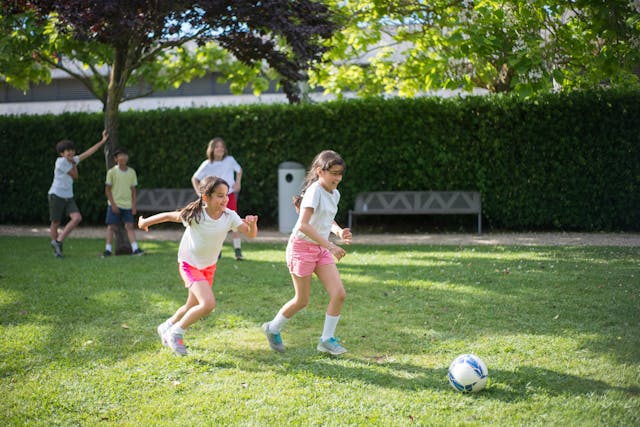Treading the seas of parenting can be difficult for any parent, both new and old. Yet, as challenging as it may be, it is also rewarding in its own way. As parents, we need patience, dedication and a willingness to adapt to the unique needs of each child. One of the most effective ways to navigate this journey is through the practice of respectful parenting also known as empathetic parenting.
Key Takeaways: Respectful Parenting
- Respectful parenting emphasizes treating children with respect, empathy, and understanding, acknowledging their unique developmental needs.
- This approach encourages positive discipline methods that foster independence, self-esteem, and strong parent-child relationships.
- Active listening, clear boundaries, empathy, and positive reinforcement are the core characteristics of respectful parenting.
- In Singapore, there is a growing shift toward respectful parenting, moving away from traditional, stricter parenting methods influenced by Asian cultural values.
- Respectful parenting helps children develop stronger self-esteem, improved emotional regulation, greater independence, and better academic performance.
- The distinction between respectful parenting and gentle parenting lies in their focus: while both prioritize empathy, respectful parenting emphasizes autonomy and independence alongside positive discipline.
- By practicing respectful parenting techniques, parents can build stronger, more positive relationships with their children, resulting in confident, responsible, and well-adjusted adults.
What is Respectful Parenting?
Respectful parenting – what is it? A respectful parenting approach emphasizes respect, empathy, and understanding for children. Rather than seeing children as mini-adults, it recognizes that they are still developing their emotional, physical, and cognitive capacities.
Respectful parenting methods are based on the principle that children are more likely to be cooperative, responsible, and self-motivated when they feel respected, understood, and valued. Hence, it is often associated with positive discipline techniques which foster independence, self-esteem, and strong parent-child relationships. Empathetic parenting encourages active listening, valuing children’s thoughts and feelings, setting clear boundaries, and providing logical consequences. Enabling children to make choices and take responsibility for their actions helps them develop self-worth. We should also adapt our parenting style to suit each child’s unique characteristics and developmental stage.
Growing Interest in Respectful Parenting Among Singaporean Parents

In Singapore, traditional parenting methods have been heavily influenced by Asian cultural values—including those from Chinese, Malay, and Indian backgrounds. With these influences, parenting in Singapore has often been characterized by strict discipline, high expectations, and little room for children to express their opinions or make decisions.
However, in recent years, there has been a growing interest in respectful parenting strategies among Singaporean parents. This shift is driven by the rising awareness of the importance of children’s emotional well-being and the benefits of fostering independence and self-esteem.
More and more Singaporean parents are recognizing the importance of building strong and positive relationships with their children. They understand that by treating their children with respect and empathy. They can help them develop the skills they need to become confident, independent, and responsible adults.
Key Characteristics of Respectful Parenting
Respectful parenting is characterized by several key elements, including:
- Active listening: Parents make a conscious effort to listen to their children’s thoughts and feelings, acknowledging and validating them.
- Empathy: Parents understand their children’s perspectives and emotions, responding with compassionate parenting techniques.
- Clear boundaries: Setting clear boundaries and consequences for children’s behaviour while encouraging them to take responsibility.
- Positive reinforcement: Using positive reinforcement to encourage good behaviour, as opposed to relying on punitive measures.
Example of Empathetic Parenting in Everyday Life
- Let’s say your child wants to play with your phone, but you need it for work purposes. Instead of taking it away and simply saying “No!” as traditional parenting methods might suggest, you could take the time to explain the situation to your child. You might say, “I understand that you want to play with my phone now. I need to use it for work, but I promise you can have it afterwards. In the meantime, let’s plan what you can do while waiting.”
This approach shows respect for your child’s feelings while also maintaining boundaries and allowing them to be part of the decision-making process—one of the key benefits of respectful parenting.
- In this example, you would be showing respect for your child’s feelings. And also acknowledging their desire to play with the phone. You are also setting clear boundaries by explaining when you will be able to give your phone. You are also providing a solution by involving your child in planning what he/she can do while waiting to play with the phone. By involving your child in the decision-making process and finding a compromise, you are helping your child develop problem-solving skills. Teaching them that their feelings and needs are as important as others.
- Another example could be when your child misbehaves in public. You, as a respectful parent, should avoid yelling or embarrassing your child in front of others. Instead, you should address your child’s behaviour in a calm and private manner. You need to enable them to verbalise the thoughts and reasons behind their actions. For instance, “I know you were excited about the store, but running and screaming is not safe. Let’s talk about how we can express our excitement in a more appropriate way.”
In this way, you are showing respect for your child’s feelings and acknowledging his/her excitement while also setting clear boundaries and teaching him/her how to act appropriately in public.
Benefits of Respectful Parenting
Respectful parenting has been shown to have a wide range of benefits for children. Some of the key benefits include:
- Stronger self-esteem and self-worth: Children who are treated with respect and empathy develop a stronger sense of self-worth and self-esteem. They learn to trust in their own abilities and feel more confident in their decisions.
- Improved emotional regulation: Children who are raised in a respectful environment learn to understand and manage their emotions better. They develop better coping mechanisms to deal with stress and negative emotions, which can lead to better mental health and well-being.
- Increased resilience: Children who are given the freedom to make mistakes and learn from them develop greater resilience. They learn to take responsibility for their actions and bounce back from setbacks more easily.
- Improved behaviour: Children who are treated with respect are more likely to be cooperative, responsible, and self-motivated. They are less likely to act out or engage in negative behaviours, which can lead to improved relationships with peers and adults.
- Stronger parent-child relationships: Respectful parenting helps to build strong and positive relationships between parents and children, based on mutual trust and respect. Children who feel respected and valued by their parents are more likely to be open and communicative. Which can lead to better understanding and cooperation.
- Increased independence: Respectful parenting encourages children to think for themselves and make their own decisions. This helps to boost their independence and self-sufficiency.
- Improved academic performance: Children who feel respected and valued by their parents tend to have higher academic performance. They have a more positive attitude toward learning and are more likely to persevere through challenges.
Video Credits: The Hidden Gem
The Distinction between Respectful Parenting and Gentle Parenting
Although gentle parenting and respectful parenting share similar principles of respect, empathy, and positive guidance, there are subtle distinctions between the two. Gentle parenting places a strong emphasis on nurturing and non-punitive approaches, focusing on creating a peaceful and cooperative parent-child relationship. It prioritizes empathy, understanding, and gentle guidance to address children’s behaviour. On the other hand, respectful parenting emphasizes treating children as individuals, valuing their autonomy, and fostering independence. It focuses on active listening, clear boundaries, and positive discipline methods. While both approaches aim to create a positive and respectful environment for children, gentle parenting places particular emphasis on creating a nurturing and peaceful atmosphere for optimal child development.
The Path to Positive Parenting

In conclusion, respectful parenting techniques revolve around treating your child as an individual and nurturing their emotional growth. Whether it’s through active listening, showing empathy, or setting clear boundaries, practicing respectful parenting leads to stronger relationships, happier children, and more confident adults.










1 Comment